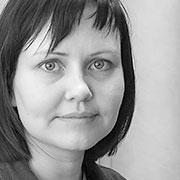Out of institutions and into society
An investigation of the change in care-work and organizational change of the 2010s in services for people with intellectual disabilities.
The Finnish service and care system for people with intellectual disabilities is undergoing a major structural change. The gradual process of deinstitutionalization will be realized in Finland by 2020. Research-based information on the progress of the change, achievement of the goals and impacts of the transition is needed at national level. The regional perspective is also of interest.
Services for people with intellectual disabilities have already long been developed in different regions of Finland with solutions that emphasize different aspects. Are these differences also reflected in how organizations, staff or the service users respond to the ongoing change?
The study examines deinstitutionalization through three levels:
- For the persons with intellectual disabilities living in institutions it is a major change in life, and the way in which this process is realized has a significant impact on their wellbeing.
- At the level of service production the study focuses on work practices in providing services that support home living to people with IDD. Support workers’ values and attitudes, practices in situations of conflicting choices and conceptions of their own professional role and capacity to cope with their duties are among the central viewpoints of the study.
- At organizational level the change is examined through documentation relating to the deinstitutionalization process in seeking answers to the following questions: What kinds of arguments/grounds are used in connection to deinstitutionalization? What kinds of changes does deinstitutionalization presuppose? What concrete measures does deinstitutionalization involve?
Employment for people with intellectual disabilities – from exclusion to inclusion
The intention of the principal research question is to explore factors that enhance or prevent the employment of people with intellectual disabilities.
The research project consisted of three sub-studies:
1. The employment situation among people with intellectual disabilities in 2013-2014
The objective of the study was to acquire national, updated data on the number of persons with intellectual disabilities working with an employment contract, the nature of the employment relationship, the employers and the performed tasks, and the numbers of people with intellectual and other disabilities who are registered as unemployed jobseekers.
On the basis of the results it can be estimated that in Finland around 500 persons with intellectual disabilities currently work in salaried employment, around 2000 in community employment and a little over 6000 in work activities based in sheltered workshops. Considerable regional and organizational differences were found with regard to the number of persons in salaried employment, with a majority of the job placements in the Helsinki Metropolitan Area. The persons in salaried employment were younger, most of them had received vocational education of some kind and they lived more independently.
2. Perceptions and experiences of employers on the employment of persons with intellectual disabilities
How do employers regard persons with intellectual disabilities as employees? Are they believed to be able to cope with their work as well as the other employees? How do employees with intellectual disabilities affect the atmosphere in the workplace and an organization’s image? Are employers willing to employ persons with intellectual disabilities? Answers were sought to these questions, among others.
3. Employment stories
The study examined the personal life histories and employment processes of a few users of employment services for people with intellectual disabilities through research carried out together with them. It focused on factors that contribute to and enable employment and obstacles to employment expressly from the perspectives of the users of these employment services.
Researchers
 |
Research Manager Sonja MiettinenResearcher, D.Soc.Sc. |
I work as a research manager at FAIDD. I am interested in the development and practical implications of disability policies and welfare policies at large. My research interests also include ways of conceptualizing disability, methodological questions of social science and women’s studies.
My current research is centered on family care. I am studying the construction of everyday life among adults with intellectual disabilities living in their childhood homes and their parents in relation to the disability and welfare policies implemented in the past decades. At the same time I have been analyzing conflicts connected to family care and seeking ways to reconcile the viewpoints of carer and care recipient.



